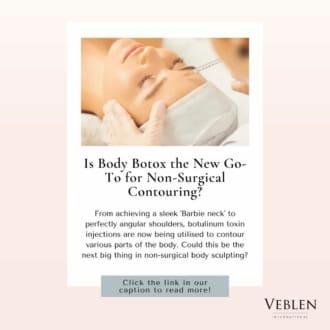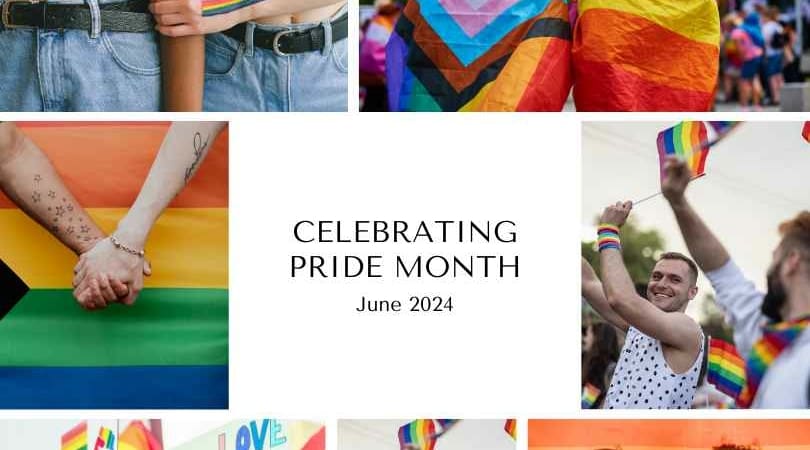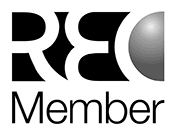The beauty industry, with its powerful influence on societal standards and individual self-perception, plays a significant role in shaping the experiences of the LGBTQIA+ community. This influence can be both positive and negative, impacting self-esteem, visibility, and acceptance. As more brands recognise the importance of inclusivity, their approaches to supporting the LGBTQ+ community can serve as both a benchmark for progress and a reminder of the work still needed.
As we begin Pride Month it is important to understand what true allyship and representation means to the LGBTQIA+ community. There are no shortage of brands that will support this community on a superficial level whilst ignoring the real challenges on a global level that are faced. Within this blog I wanted to talk through how brands can truly support the community to drive genuine and powerful change.
Several beauty brands have taken meaningful steps to embrace and uplift the LGBTQIA+ community, creating a more inclusive and representative landscape.
Fenty Beauty: Fenty Beauty, founded by Rihanna, has been a trailblazer in promoting diversity. The brand’s extensive range of foundation shades caters to all skin tones, promoting the idea that beauty is universal. Fenty Beauty has also been vocal in its support for the LGBTQIA+ community, featuring LGBTQIA+ models and influencers in its campaigns. This representation helps normalise diverse identities and encourages other brands to follow suit.
Milk Makeup: Milk Makeup has been a staunch advocate for gender inclusivity. The brand promotes genderless beauty and has collaborated with LGBTQIA+ activists and influencers. Their “Blur the Lines” campaign challenged traditional gender norms in beauty, encouraging individuals to express themselves freely. Milk Makeup also supports organisations like The Centre, which provides essential services to the LGBTQIA+ community in New York.
Morphe: Morphe has collaborated with prominent LGBTQIA+ influencers and has launched Pride collections, with proceeds supporting LGBTQIA+ organisations. Their efforts highlight the importance of allyship and the role of influential figures in advocating for the community.
Smaller Brands Making a Big Impact
While major brands often capture the spotlight for their inclusivity efforts, numerous smaller beauty brands also make significant, year-round contributions to the LGBTQIA+ community. These brands often lead with authenticity, community engagement, and targeted initiatives that create meaningful impact.
Fluide Beauty: Fluide Beauty is a queer-owned beauty brand that focuses on inclusivity and self-expression. The brand offers a range of makeup products designed to be used by everyone, regardless of gender.
- Inclusive Product Line: Fluide’s products are vegan, cruelty-free, and created to be universally flattering. They aim to provide tools for self-expression for all gender identities.
- Community Support: Fluide actively collaborates with LGBTQIA+ artists and creators, showcasing their work and stories. This not only provides visibility but also supports LGBTQIA+ talent.
- Philanthropy: The brand donates a portion of its proceeds to LGBTQIA+ organisations, including the Sylvia Rivera Law Project and the Ali Forney Centre, which supports homeless LGBTQIA+ youth.
Jecca Blac: Jecca Blac is a UK-based, gender-free makeup brand founded by Jessica Blackler. The brand initially started by providing makeup lessons for transgender women, which informed its mission and product development.
- Gender-Inclusive Products: Jecca Blac’s product line is designed to be inclusive of all genders, with a focus on addressing the needs of the transgender community, such as beard shadow coverage.
- Educational Initiatives: The brand offers tutorials and resources specifically for transgender individuals, helping them learn makeup techniques that enhance their confidence and affirm their gender identity.
- Visibility and Advocacy: Jecca Blac uses its platform to raise awareness about LGBTQIA+ issues and regularly features LGBTQIA+ individuals in its marketing campaigns, promoting visibility and acceptance.
NOTO Botanics: NOTO Botanics, founded by Gloria Noto, is a gender-fluid, natural beauty brand that emphasises sustainable and inclusive beauty.
- Sustainable and Inclusive Products: NOTO Botanics offers multipurpose, clean beauty products that cater to all genders. The brand’s minimalist approach promotes the idea that beauty should be simple and inclusive.
- Philanthropy: The brand’s “Agender Oil” proceeds go towards organisations such as Planned Parenthood and LGBTQIA+ Youth Centres. This ongoing financial support demonstrates a deep commitment to the community.
- Advocacy and Awareness: Gloria Noto, being queer herself, often uses her platform to discuss LGBTQIA+ issues and advocate for inclusivity in the beauty industry.
Freck Beauty: Freck Beauty is known for its innovative products and inclusive branding. The brand has a strong commitment to supporting marginalised communities, including the LGBTQIA+ community.
- Diverse Representation: Freck Beauty features a diverse range of models in its campaigns, celebrating different gender identities and expressions.
- Charitable Efforts: The brand donates a portion of its sales to The Trevor Project, which provides crisis intervention and suicide prevention services to LGBTQIA+ youth.
- Community Engagement: Freck Beauty frequently collaborates with LGBTQIA+ influencers and creators, providing them with a platform to share their stories and talents.
Peau de Loup: Peau de Loup is a gender-neutral clothing and skincare brand that challenges traditional gender norms in fashion and beauty.
- Gender-Neutral Approach: The brand offers skincare products designed for all skin types and genders, promoting the idea that skincare should not be gender-specific.
- Advocacy: Peau de Loup actively supports LGBTQIA+ rights and uses its platform to raise awareness about issues affecting the community. They also partner with LGBTQIA+ organisations to further their impact.
- Visibility: By creating a brand that refuses to conform to traditional gender norms, Peau de Loup helps normalise the idea of gender fluidity in the beauty and fashion industries.
Despite these positive strides, the beauty industry has also faced criticism for perpetuating harmful stereotypes and exclusionary practices.
Tokenism and Surface-Level Support: Some brands engage in tokenism, where they superficially include LGBTQIA+ individuals in their marketing without making substantial efforts to support the community. This can feel exploitative, as it capitalises on LGBTQIA+ identities for profit without contributing to meaningful change.
Lack of True Diversity: While some brands have made efforts to be inclusive, the industry as a whole still struggles with a lack of true diversity. Many campaigns continue to prioritise conventional beauty standards, sidelining those who do not fit into these narrow definitions. This exclusion can harm the self-esteem and visibility of LGBTQIA+ individuals who do not see themselves represented.
Product Accessibility: The beauty industry often overlooks the specific needs of the LGBTQIA+ community, such as products for gender-affirming care. This gap highlights the need for more comprehensive and thoughtful product development that addresses a broader range of beauty and wellness needs.
To genuinely support the LGBTQ+ community, beauty brands must move beyond performative gestures and adopt sustainable, impactful strategies.
Year-Round Initiatives: Brands should engage in continuous support rather than limiting their efforts to Pride Month. This includes consistent representation in marketing, ongoing donations to LGBTQIA+ organisations, and regular collaborations with LGBTQIA+ creators.
Authentic Representation: Brands should prioritise authentic representation in their marketing campaigns by including a diverse range of LGBTQIA+ individuals. This means not just featuring them during Pride Month but integrating them into the brand’s identity year-round.
Inclusive Product Development: Developing products that cater to the unique needs of LGBTQIA+ individuals, such as makeup for all skin types and tones, gender-affirming products, and skincare for different hormonal conditions, can help address specific challenges faced by the community.
Community Involvement: Brands should maintain close ties with the LGBTQIA+ community by participating in local events, supporting LGBTQIA+ businesses, and creating platforms for LGBTQIA+ voices within their brand ecosystem.
Internal Policies: Implementing inclusive workplace policies, such as anti-discrimination training, providing benefits that support LGBTQIA+ employees, and fostering a culture of acceptance, demonstrates a brand’s commitment to inclusivity from the inside out.
In conclusion, the beauty industry holds significant power to influence societal attitudes towards the LGBTQIA+ community. By embracing genuine inclusivity and representation, beauty brands can foster a more accepting and diverse society. As more brands commit to these principles, the positive impacts will continue to grow, helping to dismantle harmful stereotypes and promote a culture of acceptance and love for all identities.
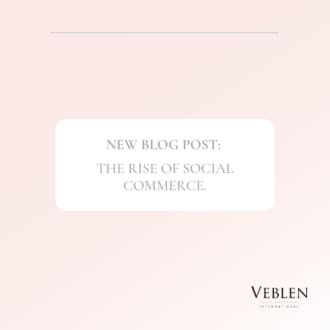
The Rise of Social Commerce
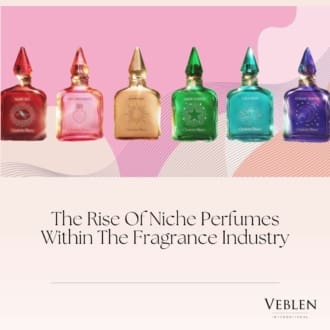
The Rise Of Niche Perfumes Within The Fragrance Industry
